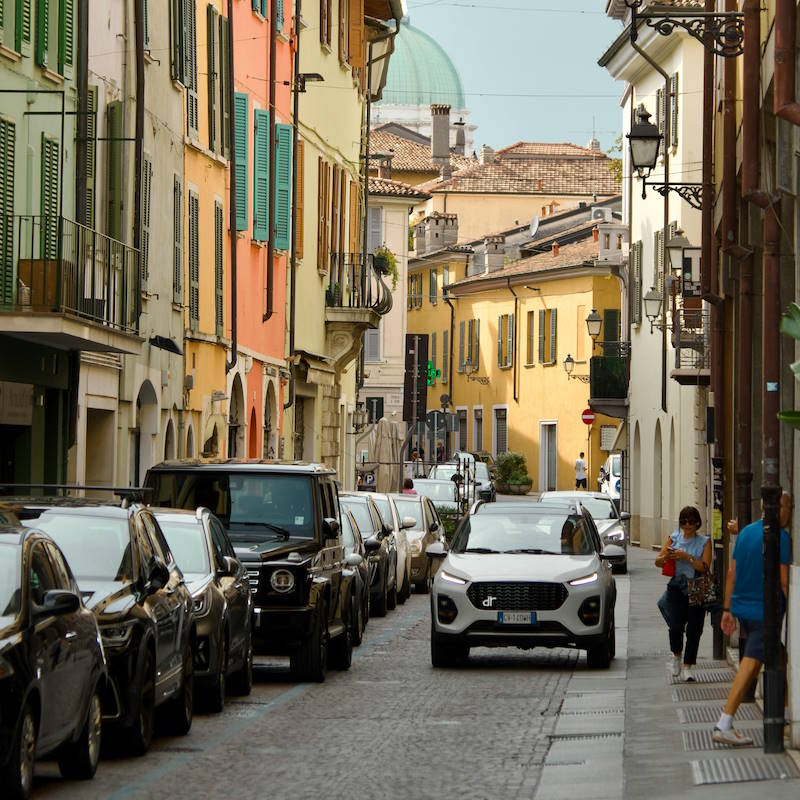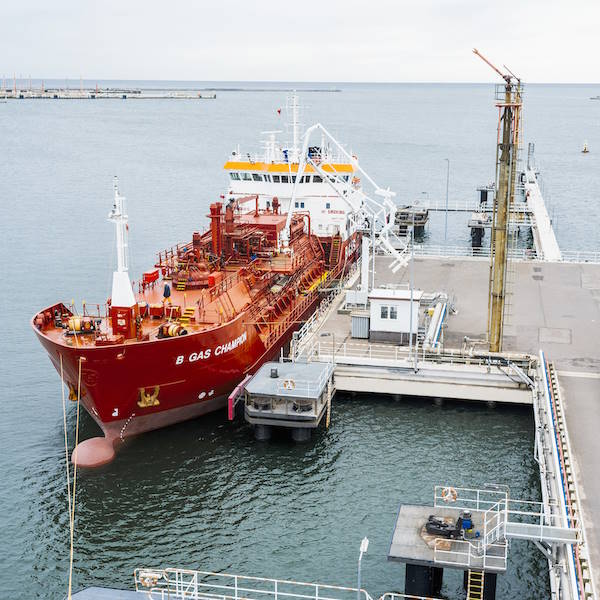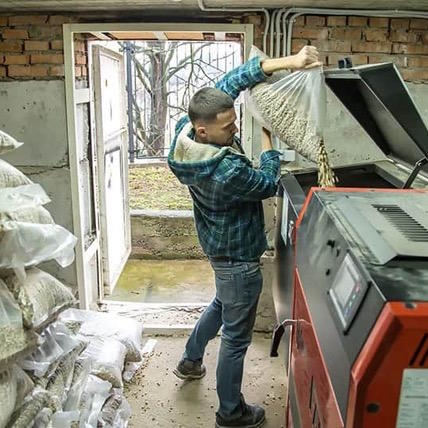Ecobarometer: the perception of LPG in 2025
30.6.2025
In May 2025, the Market and Opinion Research Agency SW Research carried out the next, 7th edition of the EkoBarometer survey. Polish Liquid Gas Organization was once again a partner of this year's research project, which allows us to observe the changing perception of LPG gas in Polish society.

We encourage you to compare the results of Ecobarometer 7 with last year's survey, which we also wrote about on our website.
Uncritical enthusiasm for ecology is behind us
The results of the Ecobarometer show that Poles no longer uncritically support ecological postulates. Social attitudes are maturing and Poles are beginning to see the relationship between climate protection, environmental protection and the costs they incur. In this, one can see a negative attitude towards performances organized by environmental activists — 51.2% of respondents answered “I agree” or “I strongly agree” to the question whether “environmental activists use ecology for self-promotion”. As many as 53.6% of Poles believe that the actions of environmental activists “do more harm than good”!
However, Poles are not indifferent to environmental protection, but only to upholding ecological values. Only 9.3% of respondents would like the European Union to suspend climate action. 71.4% agree that the state of the environment is a significant problem of our time, and 2/3 -that employers should introduce pro-ecological measures in their companies. 82.4% of respondents buy green light bulbs and 87.1% say they turn off the light - which means that they generally agree with the postulate of saving energy consumption.
In understanding the cooling towards ecological postulates, the question of the main motivation for the pro-ecological measures taken helps: for 34.9% of Poles it is economics and ecology to a similar extent, for 28.6% - mostly economics, and in some cases ecology. Only 11.7% of respondents are guided by environmental factors (mostly or exclusively).
The increase in ecological indifference of Poles is not only the result of fatigue with the alarmist message common in the media, but also a clear signal of a decline in trust in institutions and a sense of lack of influence on reality. Many citizens do not see the point in pro-environmental action, as the results of their efforts are lost in the noise of reports of global pollution, greenwashing and legislative delays. If we do not rebuild citizens' trust and competence, the ecological transition could be deadlocked — comments Piotr Zimolzak, Vice President of SW Research.
AD2025 Poles will support such ecological activities that will not involve significant costs for them, or even allow them to reduce the cost of living. The flood of alarmist information in the media only causes a sense of confusion.
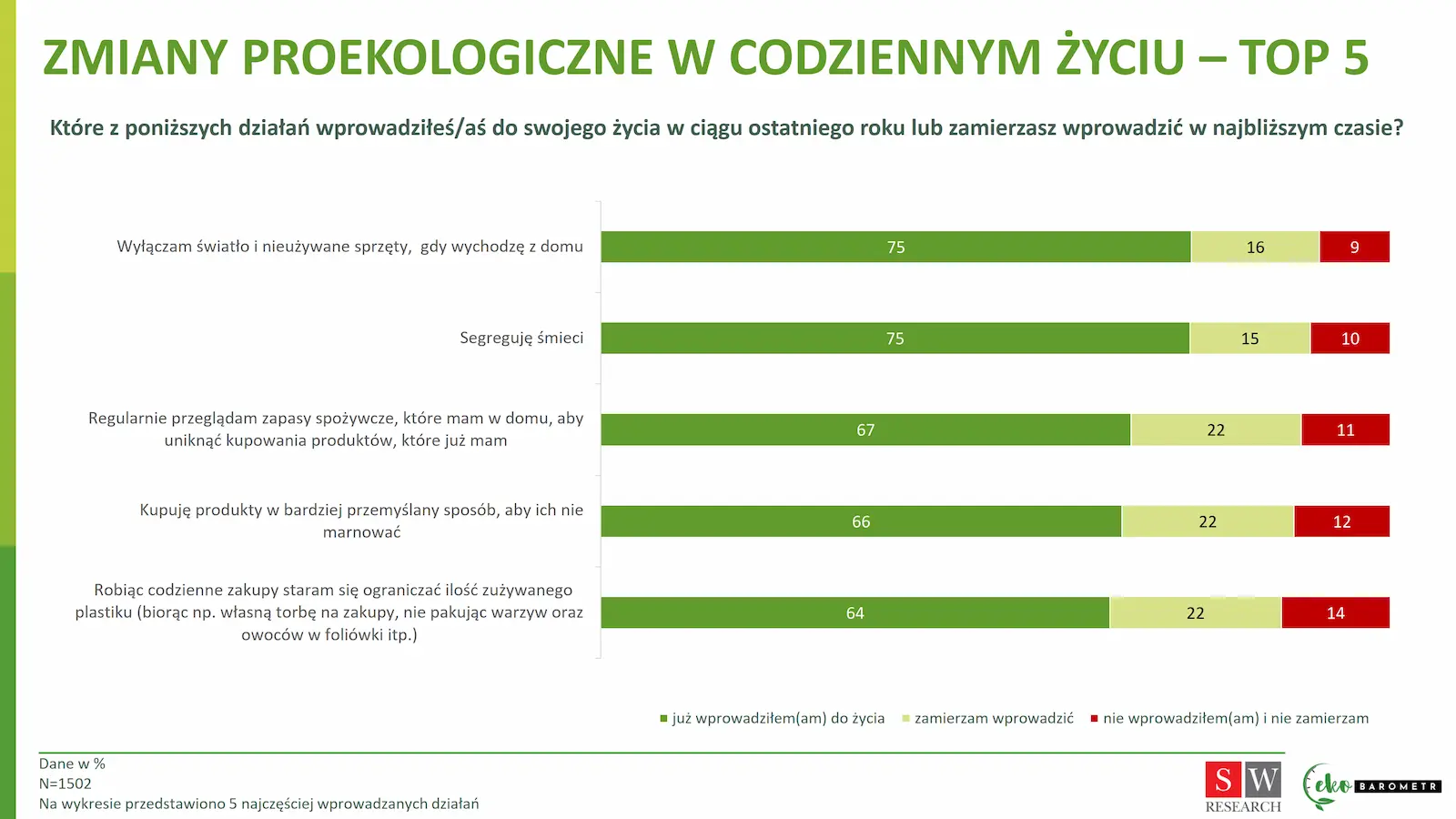
The Image Disaster of Clean Transport Zones
The fight against smog in Poland should be self-play. 70.6% of Poles indicate that health is an important value for them. 81.9% of respondents believe that smog is a serious threat to human health, and more than 43% - that air pollution is one of the biggest environmental threats for their family.
Meanwhile, only 18% of Poles believe that the introduction of Clean Transport Zones is an important step to improve air quality, and 24% completely reject the idea of introducing SCT in their city. 34% of respondents oppose any restrictions on the age of cars entering cities, and 36% of Poles believe that SCT from the ground up is unfair.
It can be assumed that the Zones have been harmed by the strong politicization of the subject, both at the national level, in the electoral campaigns and at the local level. The attitude towards the SCT may have been one of the strongly defining distinctive candidates for the electorate. On the other hand, Poles do not like restrictions and the implementation of SCT should be accompanied by a process of broad consultation and social communication.
LPG heating - primarily in rural areas
In this context, LPG remains a fuel liked and loved by Poles. 47.9% of Poles declare that they have ever used liquefied gas, whereas among residents of rural areas such indications are 50.5%. Liquefied gas is the most popular among younger people - they use it 52.1% people in the age group 25-44 years. Older people are more likely to use solid fuels.
The costs of energy transformation, as in all of Europe, are absorbing Poles today as well. Hence their positive opinion about LPG, a cost-effective fuel that at the same time allows to improve air quality - tells Bartosz Kwiatkowski, CEO of POGP.
47.6% among users of liquefied gas, it is used to prepare meals. In rural areas, there are 56.2% of such people, the most - in the age group 55-64 years. For home heating, 13.5% of fuel users use LPG, while in the villages there are 15.6% of such people. In this use of gas, young people are most likely to use gas - in the 16-34 age group there are as many as 18.7%, which is due to economic conditions and at the same time high environmental awareness.
52.3% Poles maintain that LPG is a good heating solution for areas where there is no access to gas pipelines or heating from the city network, and 52.7% - that the replacement of coal boilers with gas-fired boilers contributes to the improvement of air quality and the reduction of smog. Compared to last year, the number of positive indications increased.

A big disappointment was the exclusion of gas boilers from the program Clean Air. 51,5% respondents believe that gas boilers should continue to be subsidized from public funds - in the villages there are as many such indications 54.3%. Only 6.9% of Poles support the withdrawal of financial support for gas boilers.
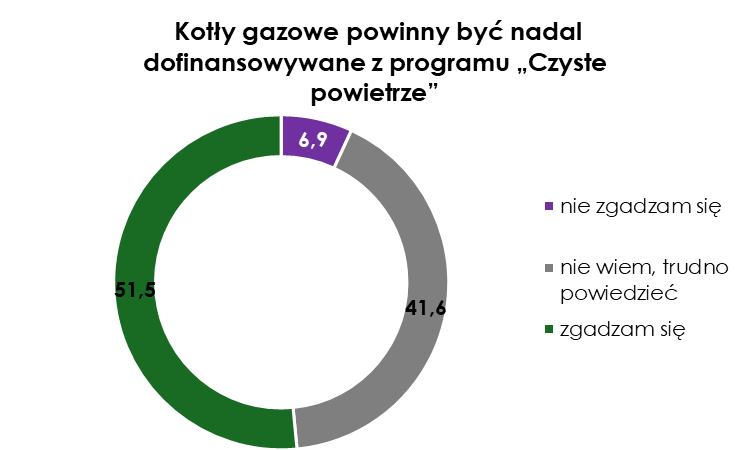
It is also worth noting that more and more Poles indicate that the use of LPG is encouraged by the convenience of using LPG installations (+4.7 pp compared to last year's survey), and that LPG gas is more ecological compared to traditional fuels (+4.2 pp).
Autogas - workers from medium-sized cities
Poland is the largest autogas market in the European Union. Vehicles powered by LPG account for about 13% of the entire car fleet in the country, and as many as 18.5% of Poles confirm that they had the opportunity to drive such a car in the last three years. This group is dominated by people of working age - among LPG users aged 25-55 43,4% uses a car with an autogas installation. Such vehicles are most popular in medium-sized cities: 43.9% gas users in cities with a population of 100-500 thousand people drive on autogas.
43.6% of Poles believe that the use of autogas (LPG) in cars contributes to improving air quality and reducing smog, but compared to last year, the share of respondents uncertain about the impact of autogas on the environment increased from 43.3% to 48.5%. This is the result of the very intensive promotion of electric vehicles and the aging of the car fleet registered in Poland.

However, Poles still willingly choose passenger cars powered by autogas. Answering the question Given my situation, it's more likely that my next car will be powered by autogas than electricity, 33.4% of respondents indicated the car on autogas, and 16.9% - electric. The biggest difference, up to three times, occurred in the 25-34 age group: in this case 42.2% of Poles indicated a car powered by autogas, and 14.4% - an electric one.
In view of the ongoing discussion about Clean Transport Zones, we asked the Poles whether, in their opinion, LPG-powered cars with important technical tests could enter the SCT. 49,3% Respondents gave a positive answer, and 5.7% - negative.
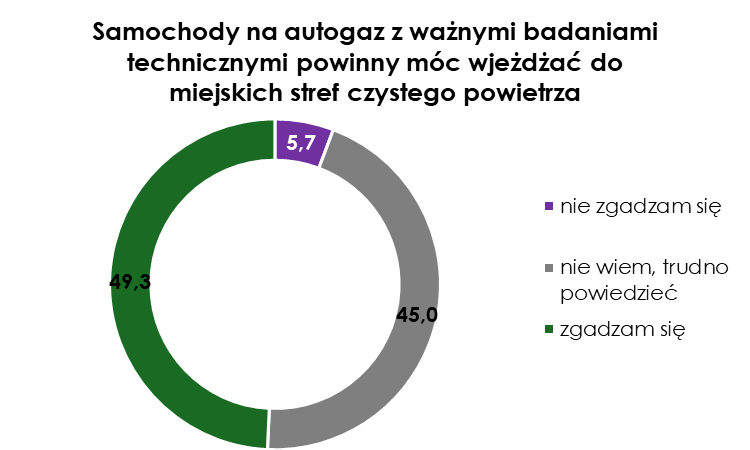
The full report of the study Ecobarometer 7 by SW Research can be found here.

